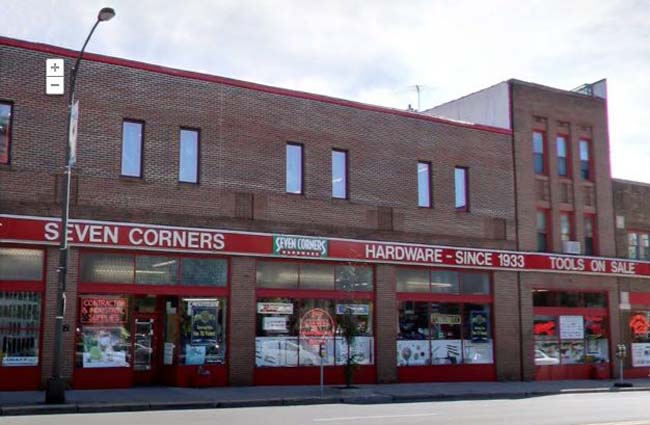
At least for most us suburbanites, the steady march of chain-store America has overwhelmed whatever defense small business could mount. Businesswise, at least, if you’ve seen one town, you’ve seen them all.
In my ‘burb, city officials approve one chain after another, then fret that the place doesn’t seem to have a “there” there. That it is indistinguishable from any other suburb, as if their actions didn’t have something to do with it.
Even in cities, it’s getting more difficult for small business to hold on when the chains move in or the developers offer money that no business owner can turn down for their property.
We lost a jewel in St. Paul a few years ago, for example, when Seven Corners Hardware closed so that a developer could get down to the business of putting a wrecking ball to the neighborhood charm of the Seventh Street area near Xcel Energy Center.
Smaller hardware stores, like the independent pharmacies before them, are a dying institution. So today’s Duluth News Tribune article on the fight hardware stores are putting up in northern Minnesota is somewhat comforting.
Menard’s, Fleet Farm, and a host of bigger companies have destroyed some of them already, however.
“I haven’t noticed anything,” owner Mark Moran at Denny’s Ace Hardware in Duluth told the paper about the threat posed by the new Fleet Farm. “We just provide the best service we can. We try to put in products not available at the big box stores.”
“If they were sitting in our backyard it would be different,” the store’s co-owner Roger Lundquist said of Fleet Farm. “I like their wide range of their products, but it doesn’t affect our business at all. We are a community hardware store and our community generally stays with us. There has been no impact or even any discussion about it from our customers.”
Still, Lundquist knows first-hand how damaging big box competition can be. He also was part-owner of Bingham Hardware on Banks Avenue in Superior. The store closed in 2006, after nearly 120 years in business, after Menards opened on nearby Tower Avenue.
One store owner said the big chains send people his way for nuts and bolts, so he’s able to survive. Maybe someday, however, the chain will figure out there’s money in nuts and bolts and that will be that.
For the most part, the hardware store owners interviewed seemed to be taking a page from the famous showdown in Brattleboro, Vt., where a local guy ran Home Depot out of town with kindness and courtesy to his customers, something the big fellas can’t or won’t supply that the so-called “mom and pops” can.
Faced with competition from big-box retailers, the mom-and-pops go out of business for one reason alone: People who shop choose the bigger store. We vote on what kind of community we want every time we spend money, then lament the lost character of a neighborhood or town that we caused.
Maybe today would be a fine day to buy some nuts and bolts.
